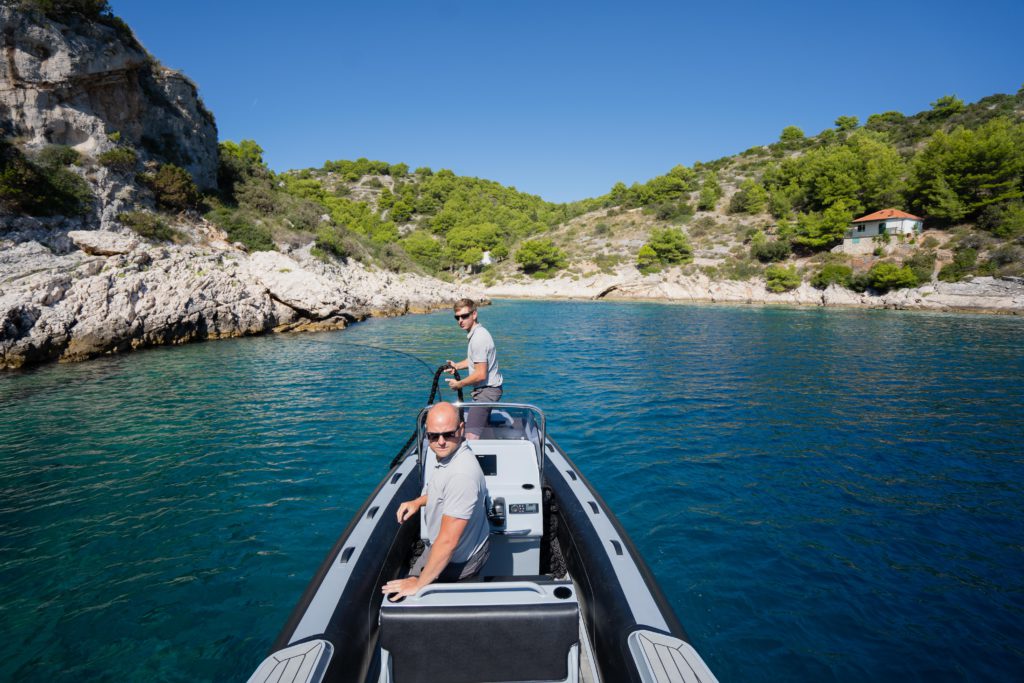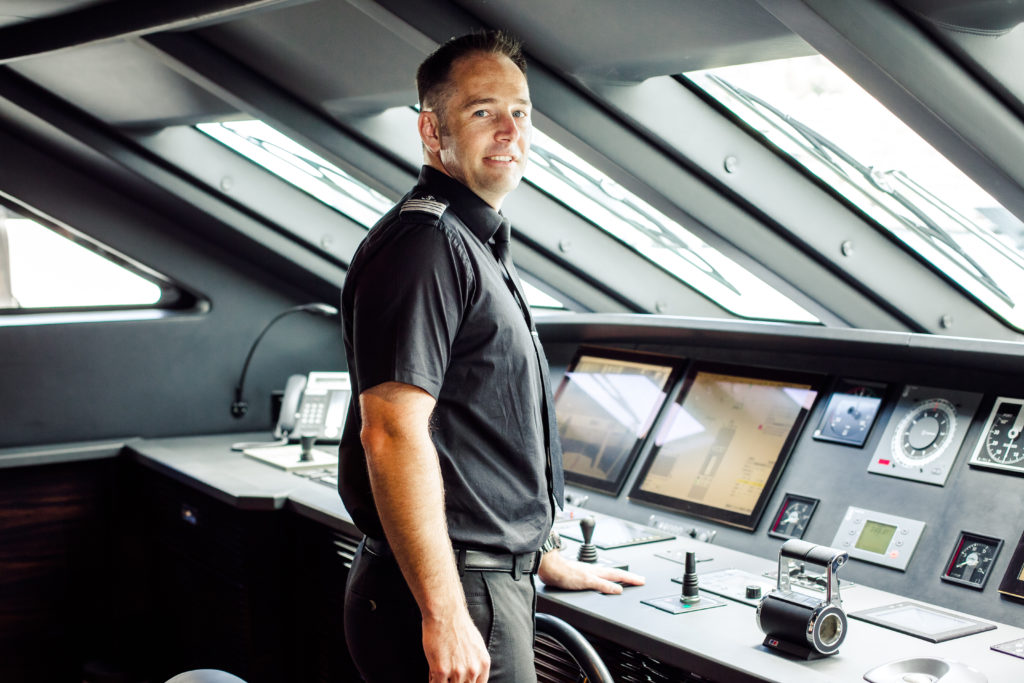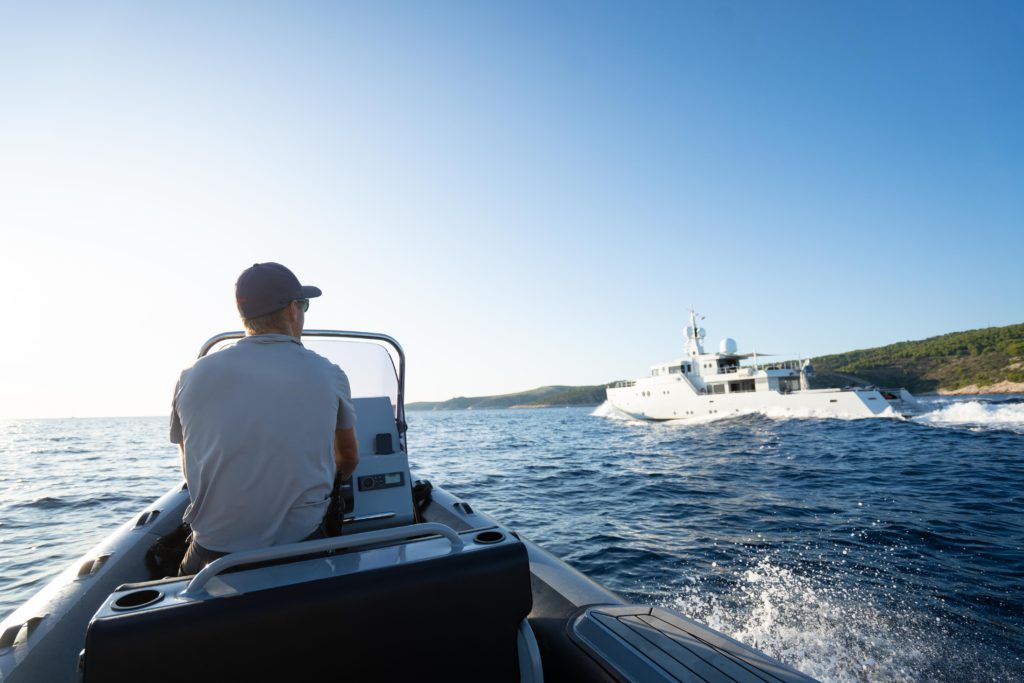The very first thing you should do is RESEARCH! Look into every bit of information you can find about the yachting industry. Read up on articles, rules and regulations, blogs and listen to podcasts to get as big a picture as you can. (Personal blogs and podcasts should not be taken for the truth, the whole truth and nothing but the truth, but they will help you to get an idea.) The yachting industry is not for everyone so it’s best to find out early on. Having said that, it is a wonderful industry with fantastic opportunities and experiences for those who want to work hard.
You should have your medical examination known as an ENG 1. This must be done by a Doctor approved by the MCA (Maritime and Coastguard Agency in the UK) who can be found worldwide. A list of approved Doctors in the UK can be found here and a list of international doctors can be found here. This certificate is valid for two years so don’t get it done too far ahead. Having said that, do get it done before taking any courses, just in case something comes up in your medical which would preclude you working on yachts.
A seemingly simple thing such as colour blindness would severely curtail your watchkeeping career for example.
Once you have passed your medical, you will need to complete your STCW 1995 Basic Crew Training. STCW stands for Standards of Training, Certification and Watchkeeping for Seafarers and this basic training was ratified by the IMO in 1995, updated in the Manila Amendments in 2010. This is entry level training and consists of five modules:
Personal Survival
Firefighting
First Aid and CPR
Personal Safety and Social Responsibility
Proficiency in Security Awareness (PSA)

Previous training in any of the above doesn’t count, even if you are a qualified firefighter or paramedic for example, these modules must all be completed. This course will take 5 days to complete and can be done in any maritime training school. This is the first level of commitment you will make for your new career.
For all crew, it would be useful to have (but not mandatory) a tender driving licence (RYA Powerboat level 2 or International Certificate of competence). Experience in any watersports will also be useful. For interior crew, service experience, floristry skills and knowledge of sewing and fabric care will always be welcome and definitely worth mentioning.

Five key points to a successful career in the yachting industry:
Professionalism: def. “the standing, practice or methods of a professional as distinguished from an amateur”
Respect: def. “to show regard or consideration for”
Ideal: def. “a standard of perfection or excellence”
Dedication: def. “complete wholehearted devotion, especially to a career”
Etiquette: def. “requirements as to social behaviour; proprieties of conduct”
Pride in your uniform, pride in your yacht, pride in your industry

Each year, there are new fashions for CVs which are neither helpful nor correct. The one page CV (a current trend) may be economical for printing and handing out when dockwalking but unfortunately it is also very economical in terms of selling yourself. This is your marketing tool! Someone of your age should not be squeezing their life onto one page and invariably vital information is left out. Please include all your past experience whether it is yacht related or not. Split your experience between Yacht or Maritime Experience and Shorebased or Other Employment.

Ensure you upload a PDF copy of your CV
Name your files with your full name and the document or qualification type. i.e. Jane Brown – Master 500 or Chris Smith – CV
When applying for a job via email, do put your name and position sought in the subject line of any correspondence
Register on our website or get in touch with our team on yacht-jobs@twwym.com
Ensure you thoroughly check your CV for any spelling errors. Remember it is always great to have someone else read over your CV to ensure it is all correct
Employ discretion on social media – employers do check Facebook, Instagram etc, so keep your posts and email addresses professional.

For all departments, STCW 2010 and an ENG1 (or equivalent) medical certificate are absolute minimum requirements to work as a seafarer. For more information, please visit the MCA website.
Each department has its own qualifications and requirements. It is advised that you do your research on reputable training centers and available courses to ensure you are completing the correct qualifications for your department and role onboard.
The Deckhand route is the most obvious path to take to – eventually – becoming a Captain. Budding deck crew should think about taking the RYA Powerboat Level II (or ICC – the international equivalent). NB If you already hold a national licence (e.g. issued by your national maritime authority e.g. AMSA, then that is fine; however, regional or localised tender driving licences (for example issued by T.A.F.E, New South Wales, Australia) are not recognised. Any watersports skills and/or qualifications will be welcome, as will any other skills or training such as carpentry, mechanics etc. Your next goal should be to gain your RYA Yachtmaster Offshore certificate and onwards. You can see the progression chart from Deck Crew here.

If you have a degree or diploma in hotel management then you are off to a good start; or perhaps you have worked in high end hotels or resorts and have gained good hospitality and service experience. If not, it’s not the end of the world either. You will learn the ropes on a yacht working under the guidance of an experienced Chief Steward/ess. However, you will need to demonstrate during your interview that you are ready and willing to learn and take instruction and that you have stamina (for the long hours!) and a good, team-spirited attitude. There are of course plenty of stewardess courses available which you can take prior to joining the industry to help you prepare for your first season. Following any training as recommended by the PYA under their G.U.E.S.T. (Guidelines for Unified Excellence in Service Training) will put you on the right path. Otherwise, ask your local florist if you can work/volunteer in her shop to pick up some tips or do some evening work in a silver service restaurant or for an events company, practice your fine needlework and gen up on laundering fine fabrics: all of this will put you in good stead for your new career.

The basic certificate required for the engineering route is the AEC: Approved Engine Course 1. This MCA approved entry level course gives you theoretical knowledge and practical hands-on experience of diesel engines. Ideally you will have had some previous experience and/or a natural ability as a mechanic. It will allow you to do regular servicing and fault detection and prevention on marine engines and take a first step as Deckhand/Engineer.
The next step is the AEC 2: Approved Engine Course 2 This course forms part of the new second engineer officer qualification for small vessels less than 9,000kW and less than 3,000GT. It forms part of the required modules to enter the industry as a junior/assistant engineer, with the ability to progress through to the Small Vessel Second Engineer Officer qualification.

Cooking on yachts is very demanding but equally rewarding! You will be catering for guests who are used to eating Michelin star food all over the world and who may also have very particular requirements for their diet. You may come into the yachting industry with a high level of experience and training but please do be aware of the different challenges of cooking on a yacht: provisioning, storage, long voyages, the demand for a myriad of different cuisines whether dictated by medical, religious or cultural requirements or simply the latest fashion – you could face them all in one charter trip!
Be aware also that MLC 2006 has changed the requirements for Chefs working on commercially operated yachts cooking for 10 or more crew; you can read up on information for chefs working on UK registered yachts on the MCA website: MSN 1846(M) and MIN 513 (M) or go to the PYA (Professional Yachting Association) website for slightly easier reading. Different flag states may have slightly different requirements for yacht chef qualifications so please check with flag state of the yacht you will be joining to make sure you comply.

We have a fantastic recruitment team.
You can Register, Log In, and Find Jobs HERE, or get in touch via EMAIL.
It will be very beneficial to Register with TWW, as this will let you stay up to date with any new job roles being posted, as well as afford the opportunity to keep your CV and documents as up-to-date as possible. Some exclusive roles are not posted on the website and are only available to registered, verified candidates.
Once you have Registered, you will receive a confirmation email with your login details. Where possible, a one-to-one recruiter interview will be set up, ideally face-to-face or by telephone. It is extremely important to keep up the flow of information regarding changes in your situation, for example, if your contact details change, you change location, if you acquire new qualifications, and, above all, if you are no longer available. Please check in online at least once a week to show that you are still actively looking for work and update your file if you become unavailable.
Should you wish to close your file and be permanently removed from our database, please inform us by EMAIL.

Subscribe to our newsletter to receive our latest offers, news and the finest selection of yachts.